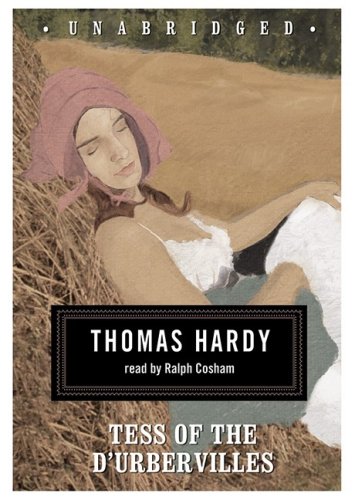
 There is no author like Thomas Hardy. This is my third by him, and he always draws me in so that I cannot stay away for too long.
There is no author like Thomas Hardy. This is my third by him, and he always draws me in so that I cannot stay away for too long. This story was written in 1891 and is part of the naturalism genre. It drew criticism in the Victorian Era because of Hardy's sympathetic portrayal of Tess. The narrator is always sympathetic toward her, and I was too. As I listened to Ralph Cosham's excellent narration, I found myself crying out, "This should be subtitle 'a pure woman'!" not knowing that Hardy had already given it that subtitle to "raise the eyebrows of the Victorian middle-classes" (http://en.wikipedia.org/wiki/Thomas_Hardy).
I knew this story because I saw the excellent four hour BBC mini-series in 2009. Since I knew where it would end up, I thought I would listen to it here and there at a leisurely-pace, but there is no comparison between watching a mini-series and reading Thomas Hardy's prose which is really more like poetry because he "regarded himself primarily as a poet who composed novels for financial gain" (http://en.wikipedia.org/wiki/Thomas_Hardy). Hardy is a master. His stories are so compelling, especially this one which is my favorite of the three that I have read.

No comments:
Post a Comment